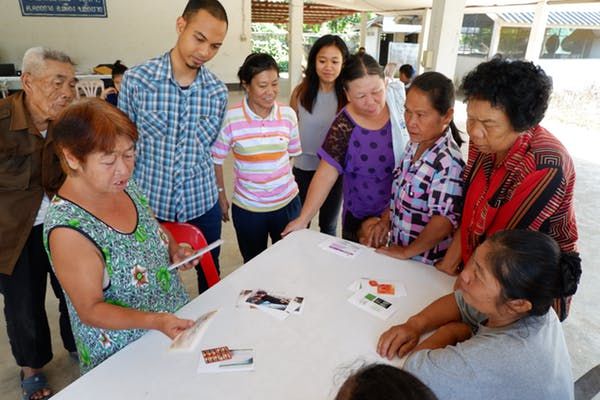
Top stories






More news


Marketing & Media
Ads are coming to AI. Does that really have to be such a bad thing?














For our study, we wanted to understand the role of education and awareness raising in non-Western countries. To do this, we held half-day educational workshops across five villages in Thailand and Laos. The findings of our research challenge the conventional wisdom that awareness campaigns are one of the best tools to change the way people use medicine.

Public health awareness campaigns can have unintended outcomes, including stigmatising people or inadvertently encouraging the behaviour they set out to discourage. Similar problems exist in antimicrobial resistance campaigns and they become even more complicated in the non-Western cultures of rural Thailand and Laos. People may not think about illnesses being caused by bacteria or viruses, or they might not use technical words for “antibiotics” but rather colloquial terms like “ampi” (for ampicillin) without necessarily knowing (or caring about) what these drugs do.
We adapted the language in our workshops to this context and “awareness” increased. An extra one-third of the participants understood “drug resistance” and its meaning after the workshop. But we could not prevent people from making their own sense of the new information. One participant felt so much more confident after the workshop that she began selling antibiotics from her village shop.
It is appealing to think that knowledge will improve behaviour, but the evidence is mixed. A recent survey in China detected, for example, that more educated people were more likely to take leftover medicine instead of going to a clinic when they had respiratory infections.
We noted similar complications in our research. In Laos, workshop participants became more likely to go to public health centres when they were sick, but they also consumed double the amount of antibiotics than before the workshop. In Thailand, rumours arose in the most educated village that our workshops were intended to ban all local medicine sales.
Even in theory, it is implausible that education and awareness campaigns alone will completely change people’s health behaviour. People’s actions are not just the result of an absence of knowledge.
For labourers or factory workers who earn £8 a day to support their families, advice to undertake a journey to a distant public health clinic for a prescription may be futile. They may take medicine from local stores in despair and (rightly) consider the global health goal of tackling drug resistance secondary to their hardship.
And yet when circumstances change, behaviour might change, too. Our study in Thailand revealed that the behaviour of people whose family members help them through an illness was more in line with recommendations from the WHO, irrespective of their awareness about drug resistance.

One hundred and twenty-five countries are now carrying out drug resistance awareness campaigns. Before we congratulate ourselves on the global action, we need to evaluate their effectiveness and whether their side effects outweigh their benefits. If factors like poverty, insecure income or lack of access to healthcare prevent people from acting on good advice, then superbug education and awareness campaigns will prove costly, ineffective and insensitive to people’s lives.
This article is republished from The Conversation under a Creative Commons license. Read the original article.![]()

The Conversation Africa is an independent source of news and views from the academic and research community. Its aim is to promote better understanding of current affairs and complex issues, and allow for a better quality of public discourse and conversation.
Go to: https://theconversation.com/africa